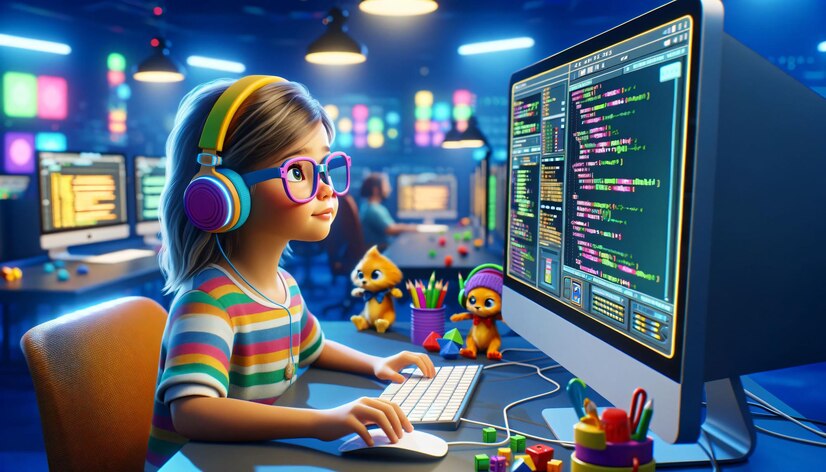
The Unity programming language is an essential tool for anyone interested in game development. Unity is a popular game engine used to create 2D and 3D games across various platforms. It provides a powerful and easy-to-use environment for developers, allowing them to bring their game ideas to life. While Unity itself is not a programming language, it uses Unity programming language, specifically C#, to handle the scripting and logic of the game.
In this guide, we will explore the basics of Unity programming language and how you can use it to develop your own games.
Getting Started with Unity
To start creating games with Unity programming language, you need to download the Unity engine. Unity is free to use for small-scale developers, and it offers a variety of features to help you make amazing games. After installing Unity, you’ll be able to write scripts using C#, the Unity language that controls game mechanics, behavior, and interactions.
Basics of C# in Unity
C# is a versatile programming language that works seamlessly within Unity. It is easy to learn and widely used in the game development community. In Unity, you will write scripts to control everything from the player’s movement to the game’s physics. Here’s how you can start writing a script in Unity programming language:
- Create a new script in Unity by right-clicking in the Assets window and selecting “Create” then “C# Script.”
- Name the script, and double-click to open it in your default code editor.
- Write your code to add functionality to game objects, like moving a player or interacting with items.
Common Concepts in Unity Programming Language
Understanding the core concepts of Unity programming language is essential for game development. Some of the key features include:
- GameObjects: Everything in Unity is a GameObject. These are objects like characters, enemies, and items that you interact with.
- Components: These are the building blocks of GameObjects. For example, a GameObject might have a Renderer component to show its visuals, a Collider component to detect collisions, and a Rigidbody component for physics-based movement.
- Scenes: A scene is where you build and organize your game. It’s a place where all your GameObjects, environments, and scripts come together.
Scripting in Unity
With Unity programming language (C#), you can program the logic that controls the game’s flow. Some basic tasks include:
- Movement: You can use C# to move objects, such as making a player character walk or jump.
- Collision Detection: Unity allows you to detect when objects collide with one another, and you can write scripts to handle those collisions.
- Events and Actions: You can trigger actions, such as opening a door when a player presses a button or defeating an enemy when its health reaches zero.
Conclusion
Mastering the Unity programming language is the key to creating amazing games. With C# and the Unity engine, you can develop your own games, from simple projects to complex interactive worlds. By understanding the basics and continuously practicing, you’ll be well on your way to becoming a skilled Unity developer.
FAQs
1. What is the Unity programming language?
The Unity refers to the scripting language used in the Unity game engine to control game mechanics, behaviors, and interactions. Although Unity itself is not a programming language, it uses C# as its primary scripting language to develop games.
2. Do I need to learn programming before using Unity?
While prior programming knowledge is helpful, you can still learn Unity and C# from scratch. Unity’s interface is beginner-friendly, and there are many tutorials available to help you get started with coding in C#.
3. Can I use other programming languages with Unity?
Unity primarily supports C# for scripting. Although Unity used to support JavaScript (UnityScript) and Boo, these languages are no longer supported. It’s recommended to focus on C# for Unity development.
4. Is Unity free to use for beginners?
Yes, Unity offers a free version for personal and small-scale use, which is perfect for beginners. If your game earns more than a certain amount of revenue, you may need to purchase the Pro version, but for most learning purposes, the free version is sufficient.
5. What types of games can I create with Unity programming language?
Unity allows you to create both 2D and 3D games. You can create platformers, shooters, puzzle games, role-playing games (RPGs), mobile games, and more. The flexibility of the Unity language makes it suitable for a wide range of genres.
6. How long does it take to learn Unity programming language?
The time it takes to learn Unity depends on your experience with programming. If you’re new to programming, it may take a few months to become comfortable with C# and Unity. However, with consistent practice, you can start building simple games within weeks.
7. Can I use Unity for mobile game development?
Yes, Unity is widely used for mobile game development. You can export your Unity projects to both Android and iOS platforms, allowing you to create and distribute games for smartphones and tablets.
8. Is Unity suitable for beginners?
Yes, Unity is beginner-friendly. It offers a variety of tutorials, documentation, and a supportive community that can help you learn the basics. Whether you’re completely new to game development or have some experience, Unity provides the tools to grow as a developer.
